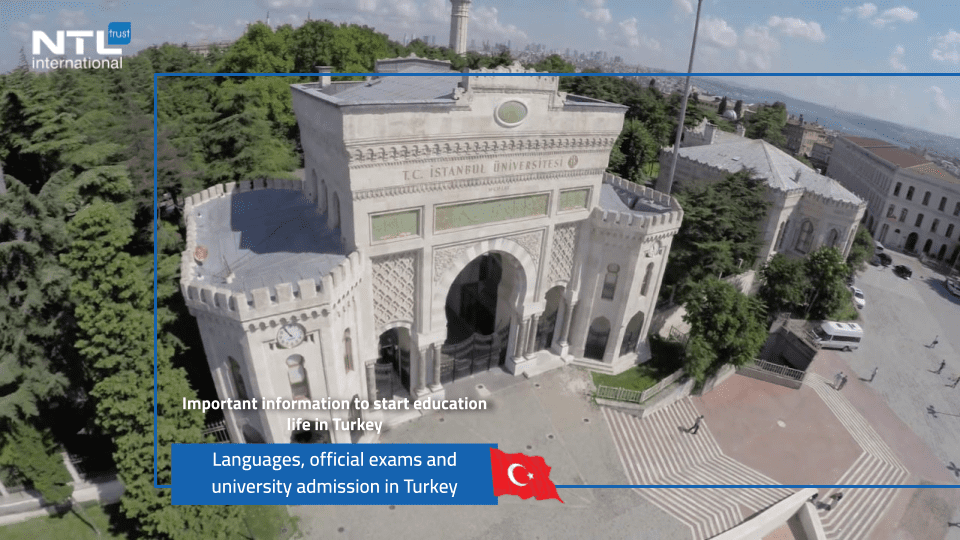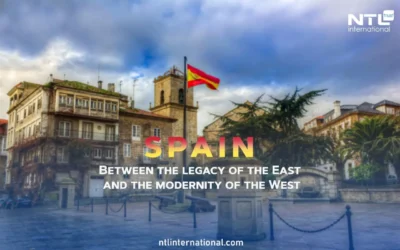
It is said: “The Turkish language does not accept competition in its country.” Therefore, anyone who thinks about life, learning, and work in Türkiye must seriously consider affiliation with the Turkish language teaching institutes for foreigners, which vary in three sources: public universities institutes, private centers, and municipal centers, the differences between these sources are reflected in the curriculum and method of language teaching and whether it focuses on teaching the daily life language, or the academic language, and in the schedule of these courses Quarterly system as in universities or another system, as well as tuition fees for these courses, and the privileges like an accredited certificate at most Turkish universities.
Among the most famous language institutes in universities are: Tomer Center at Ankara University, and the Language Center at Istanbul University, in addition to the private institutions in almost all Turkish cities. The municipality in Istanbul has established many centers and institutes that teach Turkish language, “ISMEK”, the name is an abbreviation for “Courses for teaching crafts and arts by Istanbul Municipality” which is one of the famous centres spread throughout the city. They are completely free for Turks and foreigners, and it costs only the price of textbooks.
Pre-university education:
Free compulsory education begins in Türkiye at the age of five and continues until the twelfth grade. Students graduate from preparatory to primary and lower secondary, followed by high school. They are subjected, at the end of each stage, to a set of exams that qualify them to move to the next stage.
Turks and those who are residents in Türkiye, whether they are subject to temporary protection, holders of tourist residency cards, work residency or permanent residency, are entitled to register their children in Turkish schools, whether governmental or private.
Higher Education:
Higher education institutions in Türkiye include universities, colleges, institutes, higher education institutes, music institutes, vocational institutes of higher education and applied research centres. Thanks to the rise in the number of universities from all 76 old universities to 207 universities, all Turkish cities include universities, institutes and colleges. These universities vary between public and private.
While enrollment rates for private universities generally increase, public universities remain much more popular in the seven regions of the country. This is due to the high costs of joining a private university, even if in varying proportions between universities and different majors.
While enrollment rates for private universities generally increase, public universities remain much more popular in the seven regions of the country. This is due to the high costs of joining a private university, even if in varying proportions between universities and different majors.
Turkish students and foreigners alike who wish to enrol in Turkish universities can apply directly to universities and foreign students must have completed their secondary education in a high school where education is equivalent to teaching Turkish schools; here they need to confirm this from the Turkish embassy in their country and apply To obtain a student visa.
Turkish and non-Turkish students must pass one of two exams for university admission:
First: The International Student Entrance Examination (YÖS), which is a local test for Turkish universities only and is not universally recognized as “TOEFL”, “IELTS” tests, and largely depends on the student’s intellectual level and his method of solving mathematical problems, and it consists of two parts; Basic learning “and” Turkish Language Proficiency Test “to see Turkish language level.
The second: A test called SAT, which is an international acceptance test for universities and affiliated with an American non-profit organization called “College Board,” a test that helps students enter distinguished Turkish universities or complete studies at Turkish universities. The purpose of this test is to determine the student’s ability to apply the information that he has in solving the problems presented to him in this test.
SAT relies on passing tests in reading, writing, and mathematics in the English language, most of which is information that a student has acquired in middle and high school.
Spain… Between the Eastern Legacy and the Western Modernity
If you want to travel to a European country but you are afraid of the idea of getting a cultural shock or a facing a difference in lifestyle, then Spain is the ideal choice for you.
Türkiye & UK 2021… New Agreement & New Investments
the Turkish Investors have started preparing their agendas to enter the UK’s investment market. This has come after the signing of the new free trade agreement between Turkey and the UK on December 29 last year, in the Turkish capital, Ankara.
Are you really familiar with the weirdest sights in Türkiye?
Here are five dazzling places you will discover that there is more to Turkey than Topkapi Palace in Istanbul or the rock formations in Cappadocia:
Nurses are invited to Germany
A golden opportunity for nurses to develop themselves and to secure a better life for their families as well in one of the best European countries for living and work.
Chinese Green Card after March 2020
The Chinese “Green Card”, which is the world’s hardest green card to obtain, even for foreigners living there for several years. On March 27, 2020, China ended a consultation on new regulations that qualify foreigners to obtain permanent residency, based on education, income and work experience.





